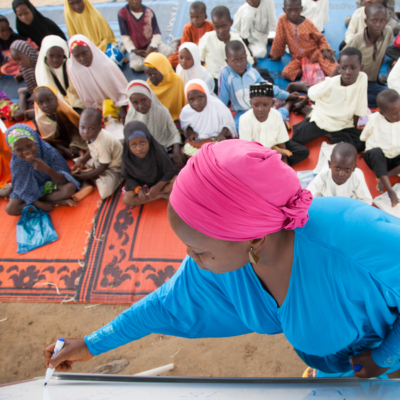Academic Alliance for Anticipatory Action

For many years, scientists have been able to effectively predict disasters before they happen. Despite this, the humanitarian community has not yet figured out how to respond to disasters before they happen. In recent years, the humanitarian sector began implementing anticipatory action mechanisms, which mean that actors are trying to act “smarter” and earlier to reduce the impact of disasters on vulnerable people, thereby saving lives and reducing human suffering.
While there is huge ambition within the humanitarian sector, we do not yet know what anticipatory action mechanisms work, where, and why. The evidence gaps relate to nutrition, social protection, fragile contexts, disaster risk finance, drought, vulnerability, famine, and climate change. For example, we do not yet know if distributing shelter reinforcement materials protects people from cyclone impacts, or if such distributions encourage people to shelter in more dangerous situations than they would without the materials thereby causing greater loss of life. Before we continue to fund and implement such programs, we need better evidence.
The Academic Alliance for Anticipatory Action (4As) is a global consortium of universities (see Partners) developing the evidence base on anticipatory action. This will be done in collaboration with humanitarian agencies that are implementing anticipatory action, including the Red Cross, WFP, OCHA and START Network. 4As is supported by the United States Agency for International Development’s Bureau for Humanitarian Assistance under cooperative agreement 720BHA21CA00044.
Bangladesh University of Engineering and Technology
Eduardo Mondlane University, Mozambique
Feinstein International Center, Tufts University
Makerere University, Uganda
National University of Lesotho
University of Namibia
University of the Philippines

Everyone says they want “localization” in anticipatory action — but what does that mean?
The time pressure involved in designing and implementing anticipatory action can discourage the localization of decision-making. Learn more from a cartoon-infused summary of insights.

Early Warning Systems: The Answer to Climate Change?
Early Warning Systems can reduce deaths and damages caused by extreme weather events, if investors address gaps in communication and planning. Learn more from a cartoon-infused summary of insights.

Acting in Advance of Flooding: Early action in South Sudan
In 2022 UN OCHA led a pilot anticipatory action intervention in South Sudan. This brief presents UN actors’ perceptions of this intervention.

Anticipatory Action in Motion: Recapping the most recent evidence and illuminating a pathway forward
This anticipatory action landscape brief summarizes what has been published on anticipatory action since 2020 and what progress has been made on existing recommendations.

Trauma-Informed Anticipatory Action: Considerations for Refugees and Other Displaced Populations
This brief builds on the existing body of knowledge on trauma-informed practice to explore ways that anticipatory action for displaced populations can be improved.

Disaster Risk Financing: An Overview From Lesotho
This brief examines Lesotho, a small country in southern Africa that is highly vulnerable to climate hazards, is equipped to make use of DRF.

Behavior Change in the Face of Disaster Risk Finance
Disaster Risk Finance (DRF) mechanisms are relatively new in anticipatory action. This paper explores how DRF can affect individual behavior or risk perception.

Air Pollution, Human Health, Weather Events, and Anticipatory Action
This paper explains the connection between air pollution and climate change and considers how anticipatory action can address the impact of air pollution.

How Can Social Protection Systems Be Leveraged for Anticipatory Action?
This literature review examines social protection systems in hazard-prone countries to make recommendations on how these systems could be best used to inform or implement anticipatory action.
Coughlan de Perez, E., Arrighi, J. & Marunye, J. Challenging the universality of heatwave definitions: gridded temperature discrepancies across climate regions. Climatic Change 176, 167 (2023). https://doi.org/10.1007/s10584-023-03641-x
What is Disaster Risk Financing?
What is disaster risk financing, and how can it help governments prepare for disasters such as climate change, flash floods, droughts, and epidemics? How did the Kingdom of Lesotho implement...
WEBINAR: Localized Anticipatory Action: Panacea and Pitfalls
Localization aims to help those planning and executing anticipatory action better meet the needs of people affected by a disaster more quickly. Since the 2015 World Humanitarian Summit, practitioners, funders,...
WEBINAR: Predicting the Future to Strengthen Anticipatory Action
In countries prone to climate and weather-related disasters, critical information helps governments, communities, and responders limit the effects of disasters. Researchers in Lesotho and the Philippines are developing new tools...
